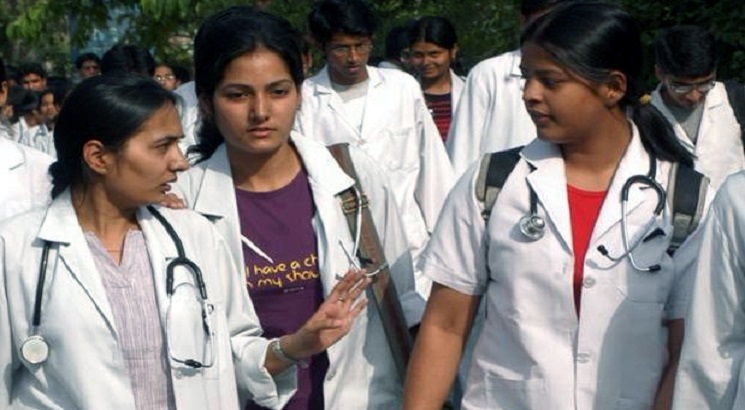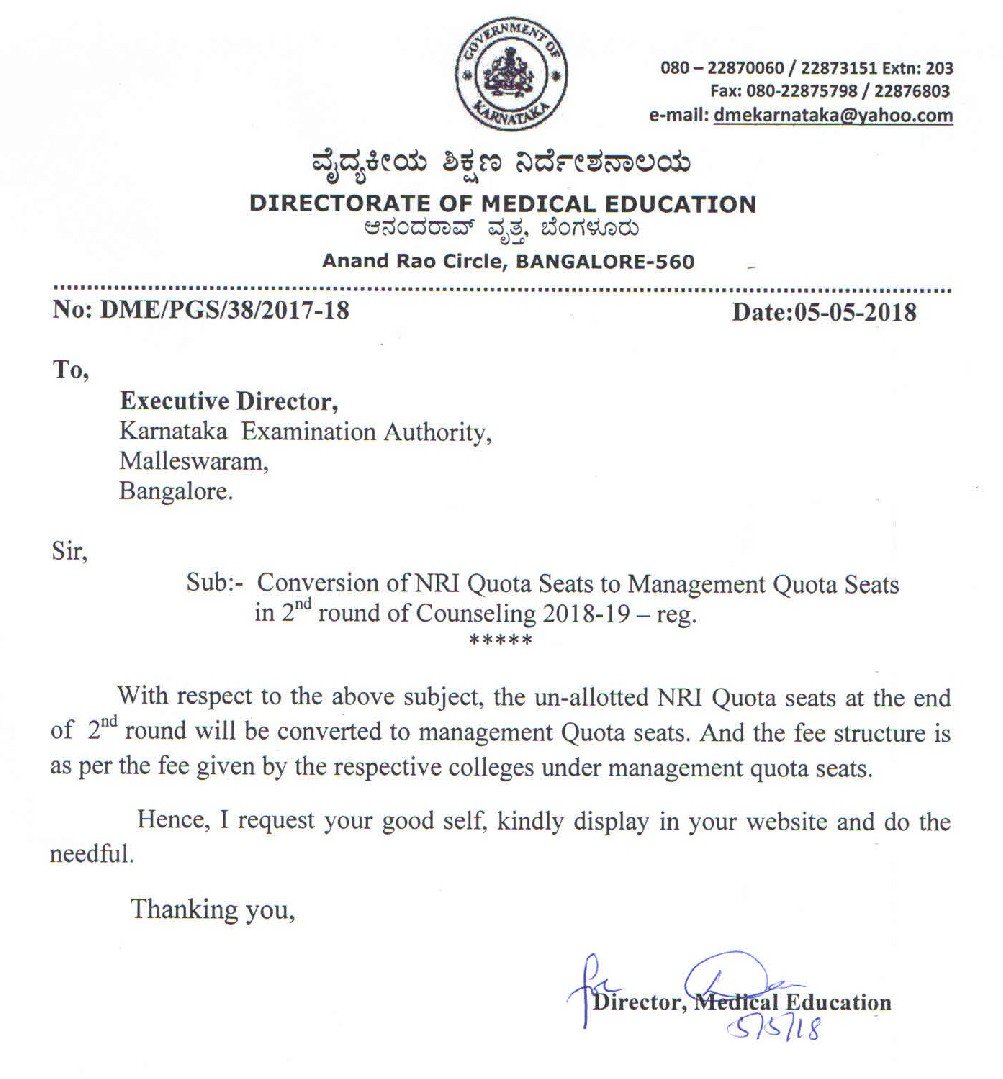NEET PG 2018: Transfer of 211 NRI seats to ‘Other’ leaves candidates disgruntled
Somesh S Menon | June 26, 2018 | 07:25 PM IST | 4 mins read

NEW DELHI, May 19: The Karnataka Examinations Authority (KEA), the conducting body of PG medical course of the state, has transferred 211 NRI seats to the Other/Management quota for the mop-up round of counselling. Out of the total 243 medical seats reserved for NRI candidates, only 32 seats were filled. The remaining have now been transferred to the management quota in accordance with the notice released by the KEA on May 5, 2018. The number is further skewed for the NEET MDS seats as there were just 5 NRI candidates who applied for dental courses out of the 124 seats reserved for NRI candidates.
The recent move has left many candidates feeling disappointed and angry, since all of these seats are now only available for candidates who can spend lakhs required to gain admissions under NRI seats.

Why the transfer of NRI seats to the Management Quota?
In the non-minority private colleges of Karnataka, 33% of the seats are part of the Government Quota, 42% seats fall under Private Quota, 15% of the total seats are reserved for NRI candidates and the remaining 10% seats come under Other/Management Quota. The private quota seats are further divided between 50% General Merit Private (GMP) seats and 50% Open seats available. These 50% Open seats are available for candidates from across India who have qualified NEET PG and have applied for the state medical counselling.
The fees for NRI Quota seats is the same as that for the Other Quota seats. On the other hand, the fees for a Government Quota seat or even a Private Quota seat is comparatively lower then a Management Quota seat. The candidates point out how the NRI Quota seats, which could be transferred to the 50% Open seats of the Private Quota, were transferred to the Other/Management Quota so that the seats could be filled but for the same price.
Uneven distribution of seats
As per candidates, the reservation of seats is not justified since there are more seats under NRI and Management quota for clinical branches as compared to non-clinical branches. For example, in General Medicine, there are 32 Government seats, 66 Private seats, 20 Management Quota seats and 34 NRI seats. In comparison to this, Anatomy which is a non-clinical branch, offers 30 Government seats, 37 Private seats and 2 seats under NRI and Management Quota collectively. Now, the seat distribution policy of the state applies to the number of seats available in colleges but not to a particular branch. However, the higher number of seats in clinical branches under NRI and management quota only reflects that the authorities want the candidates to pay more for seats which are in demand.
Given that the normal fees for clinical branches like General Medicine, Radiology, Dermatology, Obstetrics, General Surgery, Paediatrics, Gynaecology and Orthopaedics is already much higher when compared to the non-clinical branches, the tuition fees under management and NRI quota for these branches goes up to Rs. 80,00,000 to 90,00,000 per annum.
Candidates unhappy
The NEET PG applicants who have successfully qualifed the exam are understandably furious as despite performing well and having seats available, they are ineligible for admissions to the seats of their choice if they cannot spend the huge amount of money required. “They are making life-saving people ineligible for PG by basing admissions on how much they can afford, or they are forcing them to settle for a para-clinical or pre-clinical branch. In a country with a shortage of quality speciality doctors, they are making medical education elitist”, one of the candidates was quoted saying.
According to the NEET PG 2018 topper, Rachit Agrawal, “If the NRI seats remain vacant for subsequent years, then the percentage of NRI seats should be decreased and for now these seats should be transferred to the Government Quota and not to the Management Quota considering that the number of PG seats are already less in number than required.”
MC Gupta, a reputed medico-legal expert, said, “The NRI seats are just meant for auctioning to get the maximum amount of money. If there are vacant seats under NRI Quota, then these seats should ideally be transferred to the Government quota.” He further added, “The root of the problem is India’s health budget, which is just 1.15% of the GDP, which is really low in comparison with the United States or other European countries. Private seats and private medical treatment will remain exorbitant till the time government does not start spending in the health sector.”
KEA’s defence of the move
Dr. S Sachidananda, Director of the Karnataka Directorate of Medical Education, reportedly defended the move by stating that colleges are within their rights to cross-subsidise seats. Regarding the uneven distribution of seats, he said, “There is a consensual agreement to get more subsidised fees from third-party private colleges. No other state in India offers clinical seats at such a less rate. When private colleges are parting with seats for Government Quota, they are cross-subsidising fees with NRI and Management seats. And it is for that reason they may take one or two more clinical seats. But if you look at the overall seat matrix, this ratio is maintained – that is 33% for Government Quota.”
The Director also pointed out how Karnataka is one such state where 70% seats in private medical colleges come under Government Quota and Private Quota, whereas in other states, only 50% of the seats are subsidised.
Follow us for the latest education news on colleges and universities, admission, courses, exams, research, education policies, study abroad and more..
To get in touch, write to us at news@careers360.com.